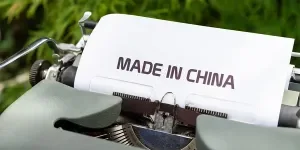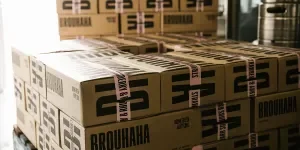In modern dating culture, the DTR (define the relationship) moment is literally one of the most defining phases, where romantic partners reach a decisive point to seek clear clarity about their relationship status, in an attempt to shape their future together.
In business, especially in the B2B wholesale world, the commitment confirmation for the MOQ (minimum order quantity) requirement between buyer and supplier, is indeed akin to the DTR moment that signifies the seriousness and long-term intent between the two parties.
To understand what MOQ means on B2B wholesale platforms such as Alibaba.com, keep reading to learn why MOQ matters, whether low or no MOQ is possible, and how to negotiate better MOQ terms.
Table of Contents
1. What does MOQ mean on Alibaba.com
2. Why MOQ matters
3. Is low or no MOQ possible
4. How to negotiate for a lower MOQ
5. A cost-volume sweet spot
What does MOQ mean on Alibaba.com
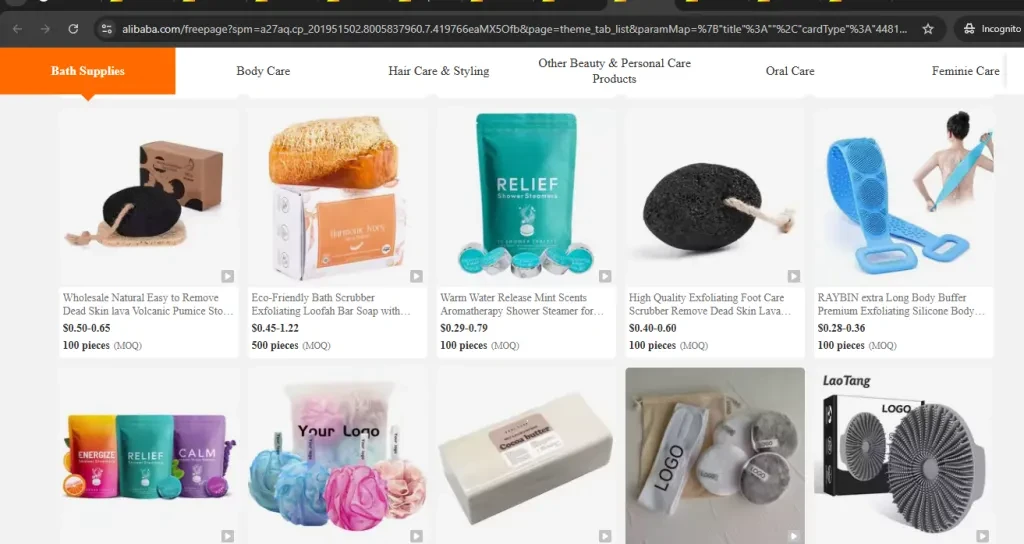
As shown in the pictures above, it’s relatively common to spot the term “MOQ” on Alibaba.com product search pages. At the same time though, one may not find such industry jargon on other ecommerce platforms or online marketplaces, since the minimum order quantity or MOQ requirement is often set by wholesale suppliers rather than retail sellers, who inevitably offer much higher prices compared to the wholesalers. In other words, MOQ is almost always associated with much lower prices.
In fact, MOQ on Alibaba.com is the smallest unit count a supplier requires for every single order, and serves as a key condition suppliers stretch to make low pricing viable. They aim to offer the lowest prices possible while still covering setup costs and securing a sustainable profit, which is why they set minimum order quantities to match the B2B scale. As a result, MOQs often differ depending on product categories, supplier capacity, and customization requirements such as OEM/ODM requests on Alibaba.com.
Why MOQ matters

Since MOQs are set by the suppliers or wholesalers, it makes sense that they’re the ones primarily shaped by or concerned with the MOQ quantity, they’re also naturally the ones who benefit most from the high MOQ terms. By fully leveraging the economy of scale principle, MOQs enable bulk production that helps suppliers lower every per-unit expense, thereby improving overall cost-effectiveness and potentially increasing profitability and efficiency.
This mass production strategy not only reduces unit costs but also enhances the competitive edge of suppliers by securing steady order volumes to better manage inventory and cash flow. In the meantime, such MOQ structuring also signals that suppliers can avoid allocating substantial resources to irrelevant, low-profit small orders.
However, it’s worth noting that MOQ is not entirely beneficial and vital for suppliers only. With strategic management, it can also come with benefits that extend to the buyers as well. In fact, a clear MOQ discussion often cements the entire transaction between the supplier and the buyer, including negotiated arrangements for subsequent delivery schedules and payment terms.
Meanwhile, it also serves as a litmus test of the buyer’s seriousness for a long-term partnership with the suppliers, especially for customized products where unique requirements are involved. Eventually, a successful MOQ negotiation lays a strong foundation for long-term collaborations between the parties and a win-win situation, reducing risks for both suppliers and buyers.
Is low or no MOQ possible
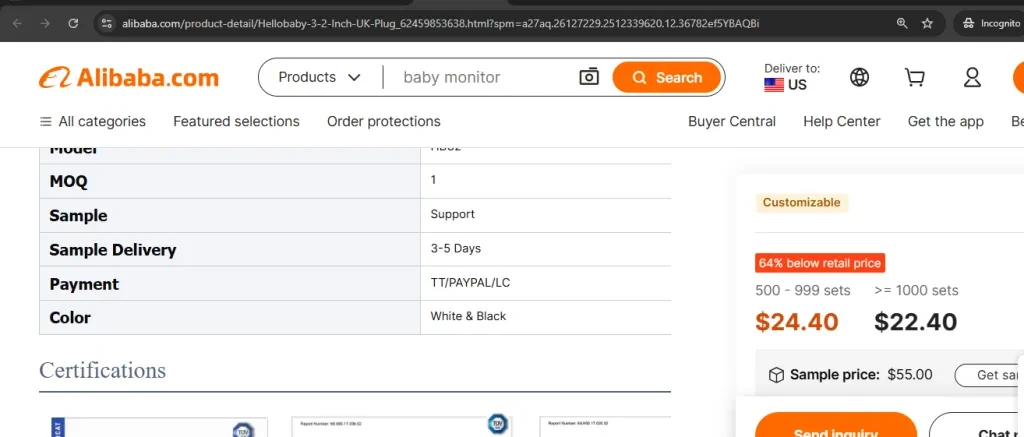
Despite the potential reduced per-unit prices and the foundational strategic role of MOQ in wholesale transactions, understandably, elevated MOQs may still discourage some new or small businesses from ordering. The reason is that those high minimum order quantities often subject them to larger upfront investments and storage constraints.
Thankfully, as depicted in the picture above, low or no MOQ requirement suppliers are still available on Alibaba.com, ideal for many of these buyers. The most direct and convenient way to spot them on Alibaba.com is through the “Ready to Ship” feature available on the wholesaler page or bulk page. Simply click on the “Ready to Ship” tab in the top-left corner of the menu bar, as shown in the image below, to find these low MOQ products.
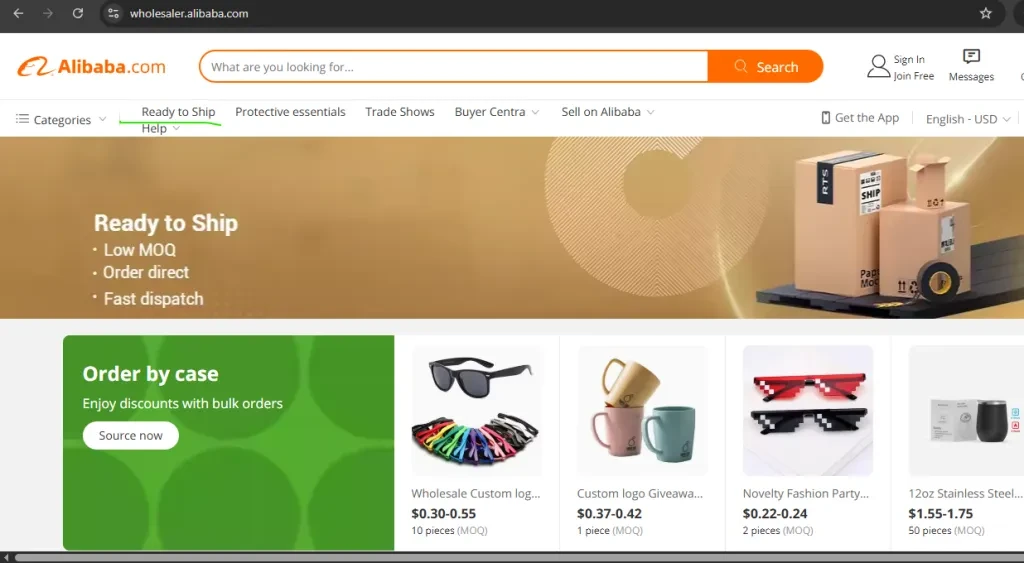
Alternatively, one can also click on the applicable sub-product category segments, such as those under personal care or household cleaning to select the “Ready to Ship” option from the same top-left menu bar accordingly. Refer to the following sample for more details.
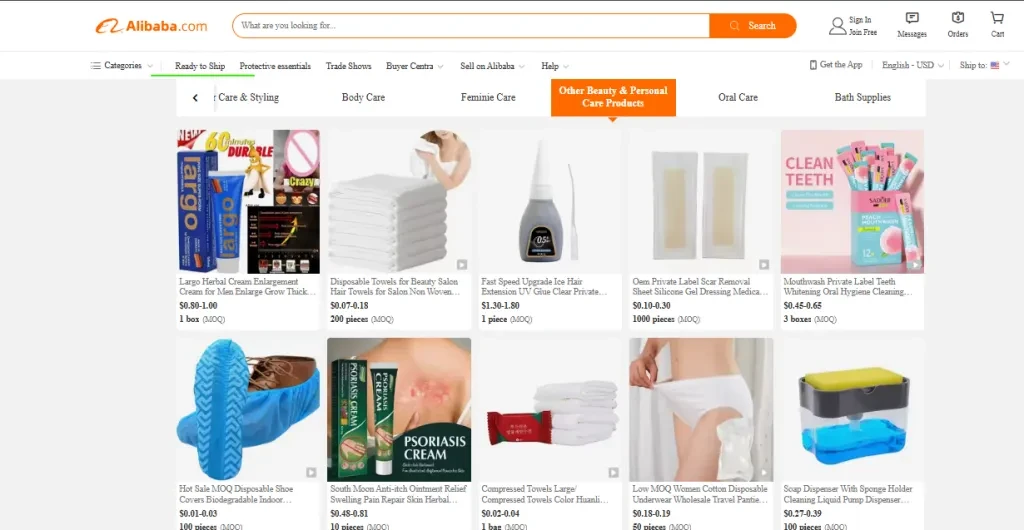
These “Ready to Ship” products, as the name implies, are ready-made items that can be shipped anytime at relatively low or even no MOQ conditions. They’re able to offer such favorable MOQ terms since these goods usually involve no customization—or at most, minimal options like only different sizes or colors, since these products are already in stock and ready to be dispatched anytime.
On the other hand, indirect workaround buyers may consider when searching for low or no MOQ providers is to fully utilize the RFQ page available on Alibaba.com. Through the step-by-step, guided RFQ template, buyers can search for qualified suppliers and request competitive offers, including those with low or no MOQ, directly from global providers.
And of course, another straightforward method is to search directly on Alibaba.com using keywords like “low MOQ” or “no MOQ” along with the product name, as illustrated in the picture below. In fact, depending on the product type, there are quite a lot of low MOQ Alibaba suppliers from time to time—especially in fashion and clothing lines, customized promotional or gift products, and certain electronics prototype runs.
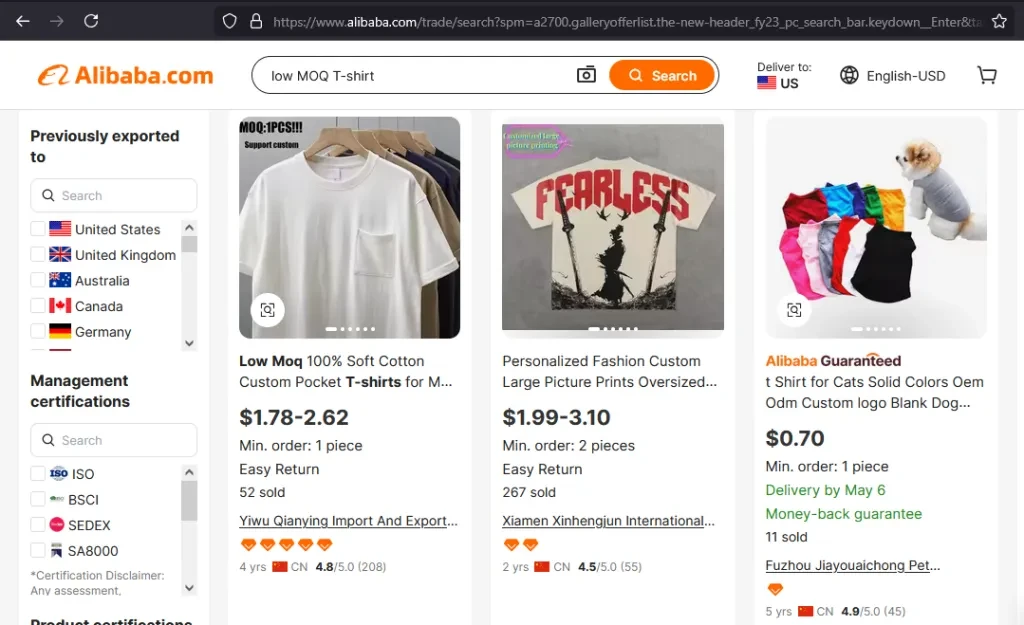
How to negotiate for a lower MOQ
Relationship building before MOQ talks

Just like any other DTR moment, it’s important to first demonstrate genuine and serious interest before moving forward to any commitment confirmation. Similarly, deeper discussion about MOQ commitment ideally occurs only after trust is built, upon demonstrating seriousness and establishing credibility, for example, by ordering samples or proposing deposit payments first prior to negotiating for a lower MOQ.
Clear communication about future orders and targeted growth plans is also a key initial step for trust-building and for successful MOQ negotiation, since long-term cooperation potential increases the supplier’s motivation and willingness to lower their MOQ, at least initially.
Realistic/ moderate MOQ reduction

Even when having superb relationships with any suppliers, MOQ negotiations must still be based on realistic, practical, industry-acceptable standards in order to gain the desired negotiation momentum. Basically, it’s essential to recognize that the concept of moderation is often the key to success in MOQ discussions.
At the same time, a good compromise strategy that the buyer can consider in making lower, moderate MOQs more viable is to simplify any customization requests to the bare minimum possible. This often works since most of the time, production costs are lower for products with minimal variations.
Higher per unit price offer
Most suppliers are willing to provide some leeway on MOQ requirements in exchange for securing a new deal. Nevertheless, there are cases where suppliers already offer extremely low prices, or in rare cases, where certain materials and production costs increase unexpectedly, causing a fixed, non-negotiable ceiling for lower MOQ.
Under such circumstances, buyers can still request a lower MOQ but with flexibility in price expectations, for instance, by offering a slightly higher per-unit price to persuade suppliers to agree. In reality, as reflected in the image below, many manufacturers offer a tiered pricing structure that indicates different price points per different order quantity. Buyers can take advantage of such a structure to negotiate a balanced deal for mutual benefit.
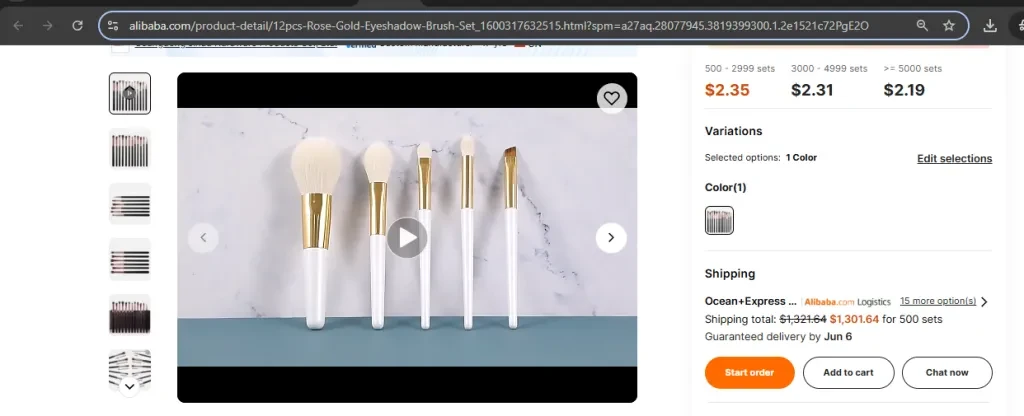
Collaborate to meet MOQ
The idea of pooling order resources together with other parties may not sound easy — and it really isn’t! This is especially the case if buyers are solely relying on their own efforts to find other collective buyers. Hence, to help satisfy MOQ conditions, a more feasible approach may be to simply ask the supplier directly about the possibility of adding a smaller order to another client’s larger batch production. This method may work well for suppliers who consolidate orders regularly.
At the same time, another possibility is to seek advice and support from professional third-party agents who specialize in sourcing services to negotiate on the buyer’s behalf. Most of the time, these experienced agents can leverage their expertise and relationships to negotiate lower MOQs.
A cost-volume sweet spot

Minimum order quantity, or MOQ on Alibaba.com, represents the smallest order size a supplier can accept per transaction and that often unlocks a lower price possibility. MOQs vary depending on product types and supplier capacity, while customization needs may also affect MOQ requirements.
The concept of MOQ is important to suppliers, allowing them to make full use of economies of scale to lower overall per-unit costs, secure stable order commitments for better cash flow, and simplify inventory management, diverting attention from small, less profitable requests. Buyers can also negotiate for a more holistic MOQ agreement that includes full payment and shipping terms. Both parties can use the MOQ stage to reach a cost-volume sweet spot that is mutually beneficial in laying down a solid foundation for future dealings.
Building relationships before MOQ talks, while also offering pragmatic, moderate lower MOQ requests or suggesting a slightly higher per-unit price in exchange for reduced MOQ are among the most effective ways to negotiate with suppliers for lower MOQ. For more tips on successful sourcing on Alibaba.com and all other wholesale business ideas as well as more logistics insights, visit Alibaba.com Reads regularly to stay updated.


